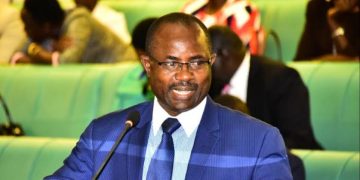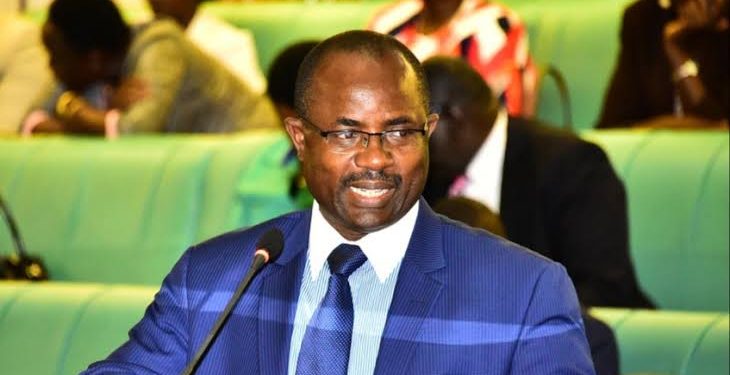Uganda is set to host the 5th Africa-Wide Agricultural Extension Week (AAEW) from November 14-20, 2021.
The AAEW, will see over 45 countries, and over 600 participants converge in Uganda to reflect on the status of agricultural extension and advisory services delivery in Uganda and Africa at large.
This will be the first time for Uganda to host the event under the theme “Effective Agricultural Extension Systems for Sustainable Agripreneurship in Africa”.
It will be conducted both physically and virtually, the physical event will be held at the Speke Resort Hotel Munyonyo in Kampala.
The Minister of State for Agriculture, Fred Bwino kyakulaga speaking to the press at the Uganda Media Centre, said that the event gives Uganda an opportunity to take stock of the progress made so far in strengthening the agricultural extension system, identify the constraints to the progress and define the strategy for continued improvement.
Kyakulaga noted that the goal of extension and advisory services is to promote the transfer and application of appropriate information, knowledge and technologies to farmers.
He said that effective delivery of agricultural extension and advisory services, deserve special attention as a vehicle for transformation of Uganda’s agriculture.
“There is no country globally that has transformed the agricultural sector without putting in place an effective and efficient agricultural extension system, Weaknesses in agricultural extension systems in the Sub-Sahara Africa are significantly responsible for the stagnation and sometimes retardation in agricultural development,” Kyakulaga said.
He now says that the Ugandan government, undertook reforms in the agricultural extension system in 2016 such as the establishment of the Directorate of Agricultural Extension Services, formulation of the National Agricultural Extension Policy 2016 among others.
Kyakulaga revealed that an annual agricultural extension grant of about UGX 126 billion to support extension service delivery at the district local governments LGs is provided in the national budget.
“furthermore, with support from development partners, 137 motor vehicles and 1,061 motorcycles were provided to support extension service delivery in local governments,” he said.
However, the agricultural minister notes that despite the progress made, the interventions have not met the desired targets for a strong agricultural extension and advisory system.
“For instance, many constraints are still persisting, they include high farm household to extension worker ratio of 1:1800 which is higher than the recommended 1:500 ratio; inadequate Transport facilities and facilitation for work, weak farmer organizations, weak linkages of extension services to farmers and to research among others,” Kyakubaga said.
He said that his ministry, is determined to innovatively make agricultural extension services responsive to the development needs of the farmers with particular emphasis on liberating the 39 percent of the population from subsistence and help them to join the money economy.











